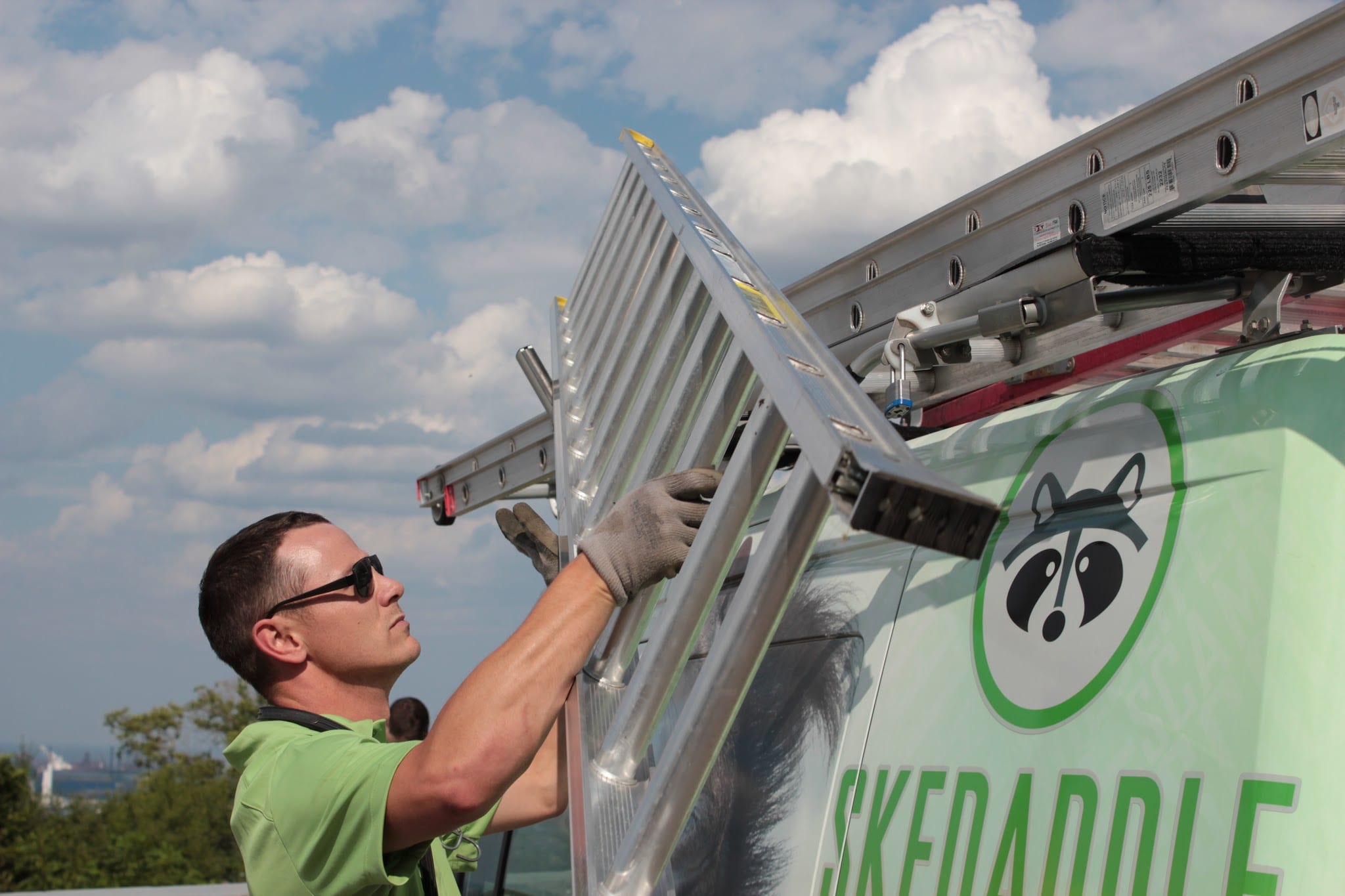Their story started like many field service companies: with a man in a van. Hamiliton-based Skedaddle Humane Wildlife Control operates more than 30 vehicles across 75 cities in Canada, with hopes of expanding to the U.S. in the coming years. The point at which the story unfolds from the one-man-van to the fleet is rooted in the adoption of technology.
Skedaddle’s COO Barry Dowd and the company’s CEO and President Bill Dowd shared with SmartVan how their company has implemented technology to grow, break down language barriers, and maintain customer satisfaction all while becoming a franchisor and continuing to scale.
Removing wild animals from a home is a unique service. How do you go about it?
Bill Dowd: Our process is something that my company pioneered over 25 years ago. It’s a hands-on technique, which means we don’t use traps. We go right into people’s roofs or up into their attic. We crawl around and get the animals out. If there are babies, we have methods to pick up the babies and reunite them with their mothers on the outside. We then animal-proof the property and give a lifetime guarantee to customers that if the animals get back in, we can help them get them out for free. It’s a win-win situation for the animals, for us as a company, and for the homeowner.
I imagine the process of visiting a home, figuring out a strategy, and potential follow-up visits may mean different techs are involved in the process from beginning to end. How has technology helped streamline customer service?
Bill Dowd: We usually make three visits: one to assess the situation, one to do the job, and then one follow-up. We’re a fixed-price, one quote, all-inclusive-until-we-solve-your-problem company, so we come until the animal is removed. There are jobs, when they’re difficult, where we’ll have to go back multiple times. If you’re the technician that’s going back on the third or fourth visit, you need to know the history of what happened in the past to try to solve the current situation.
A thinking animal is an intelligent being. Raccoons are one of the smartest animals on the planet. It’s an animal that can formulate ideas and figure things out — sometimes better than we can. Sometimes they’ll stump us. That’s why we need to have all of our information at the fingertips of any of our technicians.
From a corporate standpoint, we’ll have inquiries that come into our office about things that are happening in the field, so the office staff, as well, has all the information at their fingertips. We’re in 75 different cities or towns in Canada, but some of these towns are eight, 10 hours away. We have one of our franchises in another province, which is about a two-day drive.
We have technicians in Nova Scotia, in Montreal, so they’re all using technology to input information to our main office. So if someone speaks French to somebody in Montreal and talks about a squirrel or raccoon, it’s at the fingertips of people in the office in Toronto, and it’s at the fingertips of anyone in the company to see it. We have bilingual customer service reps and staff that are in Montreal and in Ottawa.
How has the transition been for your executives implementing technology and for your techs actually switching from form to tablet, for example?
Barry Dowd: We used to do it all manually, with pen and paper, and a big whiteboard. As we grew, we found that a paper system didn’t work that well anymore so we went looking for solutions.
We had some growing pains with it: from custom software solutions to off-the-shelf software. We also had a server crash with one of our systems leaving 25 trucks parked on the side of the road, not knowing where they were going. At that point, we knew a cloud-based solution would be best for us, which is why we went with ServiceMax.
We service a huge geographic area. The trucks don’t report to the office, but the adaptation is easy for our guys: they log into the system on Android phones, Android tablets, or laptops, and can pull down their work orders. It’s one adaptation. Everybody has the same information. It’s not always the same technician that goes to a customer site, so all the company history’s there. It just makes the company run very smoothly. And we don’t worry about it. We can focus on the core business and not really on the technology.
What’s the most interesting animal you’ve caught?
Barry Dowd: Japanese snow monkeys. They escaped from private zoo in the Niagara region. The monkeys were from the mountains in Japan, so they loved the cold. They were on loose for 3 years, and the government of Ontario asked for our help. Monkeys, llama, great horned owl, snakes we’ve caught them all.

Share this: